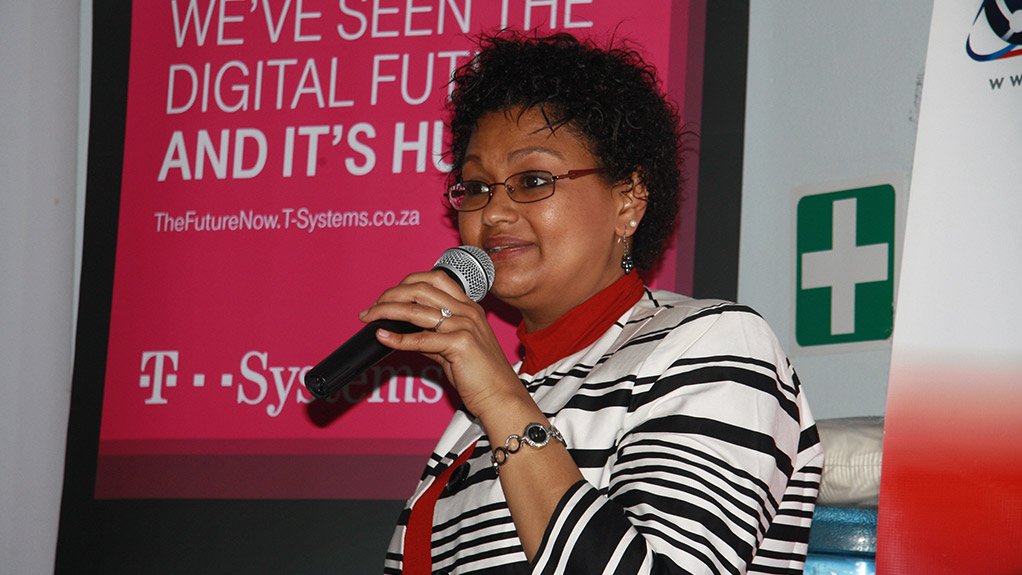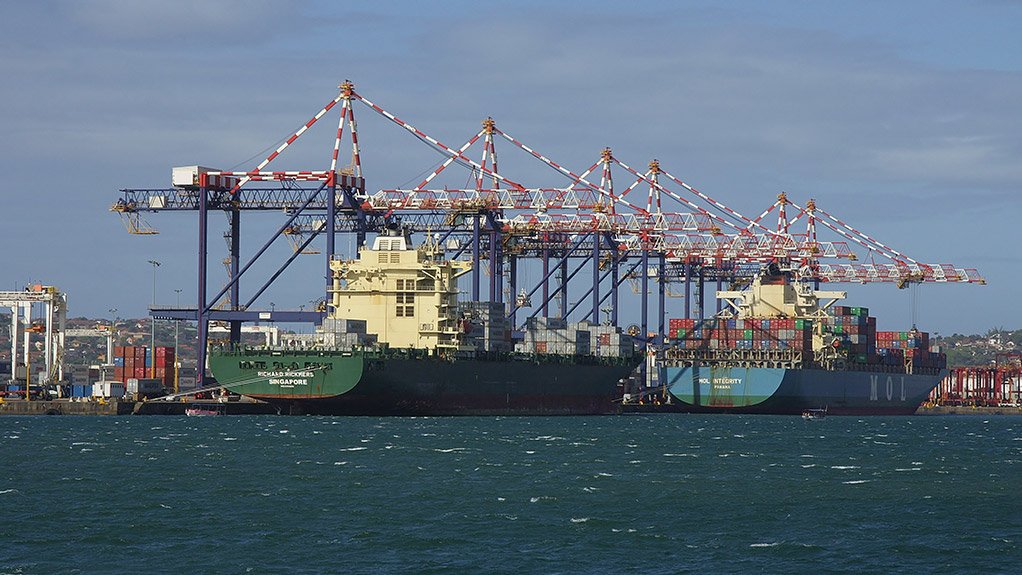South African port costs debated
A statement that local ports were among the cheapest in the world, sparked intense debate at a Transport Forum meeting, in Durban, late last week.
Drawing on global statistics which included a World Bank study, Transnet Port Terminals (TPT) senior manager for strategy Willie Coetsee said South African ports were “extremely competitive”, especially when it came to bulk commodities where charges were up to 57% below global averages.
He noted that high logistics expenses in South Africa were the result of large distances from major markets, as well as the long distance between the Port of Durban and Gauteng, rather than high port costs, which accounted for just 15.6% of total supply chain costs.
He pointed out that the World Bank’s 2014 study had indicated that TPT’s port handling charges were up to 35% lower than those charged by terminals worldwide and that total port charges were 12% lower than average charges at ports around the world.
Acknowledging that comparing port costs was not an exact science, he said it was impossible to compare South African ports with those in China where port development was 100% paid for by the State and each port alone handled ten times the cargo handled by all ports in South Africa.
In the US, where ports were self-funded like in South Africa, costs were considerably higher, he noted.
However, drawing on similar data, Ports Regulator of South Africa senior manager for strategy Chris Lötter noted that a significant number of studies had identified a number of anomalies that needed to be dealt with over the next ten years.
He said there seemed to be no apparent reason why the overall tariff book featured 77 different tariff rates and 44 rates for dry bulk or why there were significant discrepancies between these.
He said three benchmarking reports published by the Ports Regulator had also pointed to significant cross subsidies in South Africa’s port system.
He agreed with Coetsee that, all told, port dues seemed low. “If you are a mining house, cargo dues are low. If you are a vessel owner, then vessel costs in South African ports are significantly below the global average. But if you are a container owner or a vehicle manufacturer in South Africa, you are significantly above the global average,” he stated.
He explained that the Ports Regulator would address cross subsidies and had asked the National Ports Authority to submit proposals that would inform a new tariff strategy going forward. The regulator had engaged twice with the public, as well as with consultants and industry experts on this new strategy.
The aim was to look at levelling port pricing across all South African ports.
He said the first step was to examine who was paying for what and determine the correct investment sequence. “In the past, the bulk of our revenue came from the container sector and still does.”
He noted that, according to a final matrix of asset allocation, the bulk of costs was likely to shift from cargo owners to shipping lines over the next ten years. Currently, cargo owners contribute 60% of all costs in the port (excluding terminal operations), while 22% came from leases and 18% was contributed by shipping lines.
The regulator is moving towards a more equal distribution of costs and those importing or exporting dry bulk could expect increases of between 18% and 29%, while the biggest drop – from 36% to 14% – was expected to come from containers.
However, he acknowledged that many variables applied. The regulator would publish a yearly base tariff for each commodity. However, specific commodities would gradually fall away, leaving a single port tariff for all.
Lötter noted that the new tariff strategy had to be flexible enough to allow Transet to offer incentives and discounts to its customers, especially when it came to transshipment cargoes. However, these needed to be paid by Transet and not by port users.
He said that where cross subsidisation was necessary in terms of wider national economic policies, there had to be full transparency with all details made known.
Council for Scientific and Industrial Research senior researcher for transport freight logistics Simone Smith added that another factor that had to be considered when analysing the cost competitiveness of South African ports was global best practice and connectivity. Delays at front-of-port, long dwell times in port and back-of-port congestion indicated poor connectivity.
She said local ports performed well when compared with their regional counterparts but were far slower when compared globally.
Issues that needed to be scrutinised included time taken at each point of performance, excess documentation and the need for increased port intelligence when processing these and dislodgement between maritime and logistics.
Harbour Carriers Association spokersperson Kevin Martin noted that back-of-port delays reduced the number of trips per vehicle, significantly increasing the cost of all cargoes carried by road.
Comments
Announcements
What's On
Subscribe to improve your user experience...
Option 1 (equivalent of R125 a month):
Receive a weekly copy of Creamer Media's Engineering News & Mining Weekly magazine
(print copy for those in South Africa and e-magazine for those outside of South Africa)
Receive daily email newsletters
Access to full search results
Access archive of magazine back copies
Access to Projects in Progress
Access to ONE Research Report of your choice in PDF format
Option 2 (equivalent of R375 a month):
All benefits from Option 1
PLUS
Access to Creamer Media's Research Channel Africa for ALL Research Reports, in PDF format, on various industrial and mining sectors
including Electricity; Water; Energy Transition; Hydrogen; Roads, Rail and Ports; Coal; Gold; Platinum; Battery Metals; etc.
Already a subscriber?
Forgotten your password?
Receive weekly copy of Creamer Media's Engineering News & Mining Weekly magazine (print copy for those in South Africa and e-magazine for those outside of South Africa)
➕
Recieve daily email newsletters
➕
Access to full search results
➕
Access archive of magazine back copies
➕
Access to Projects in Progress
➕
Access to ONE Research Report of your choice in PDF format
RESEARCH CHANNEL AFRICA
R4500 (equivalent of R375 a month)
SUBSCRIBEAll benefits from Option 1
➕
Access to Creamer Media's Research Channel Africa for ALL Research Reports on various industrial and mining sectors, in PDF format, including on:
Electricity
➕
Water
➕
Energy Transition
➕
Hydrogen
➕
Roads, Rail and Ports
➕
Coal
➕
Gold
➕
Platinum
➕
Battery Metals
➕
etc.
Receive all benefits from Option 1 or Option 2 delivered to numerous people at your company
➕
Multiple User names and Passwords for simultaneous log-ins
➕
Intranet integration access to all in your organisation






















